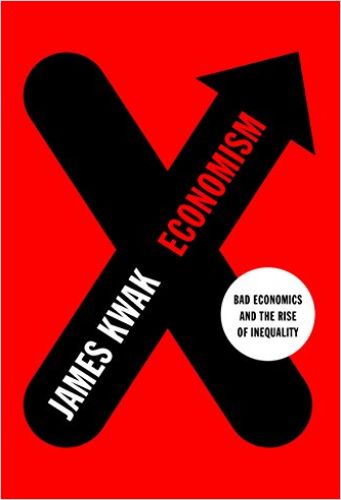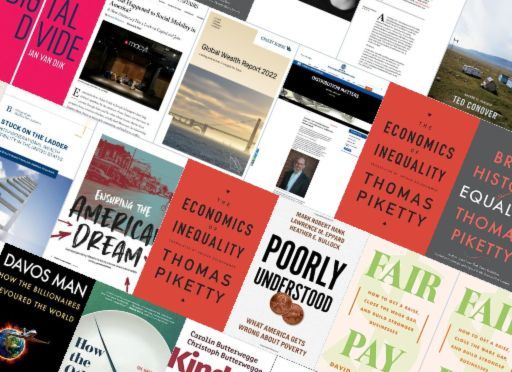How does what you learned in Economics 101 apply to real life? James Kwak finds that it doesn’t apply at all, except in service to the wealthy and powerful.

Cutting Through the Hokum
In his erudite analysis, James Kwak explains “economism” – an ideology based on oversimplified but otherwise credible ideas that further the interests of the powerful – and he tells how its current version has spread from academia to politics to mass media. He emphasizes that economism produces inequalities, and his revelations of how it dictates US policy are eye-opening. Kwak seeks to unteach what Economics 101 likely taught you – that certain economic theories are valid in the real world and help keeps economies in balance. Kwak thinks that is absolute nonsense.
Experts agree with Kwak. For example, Lawrence Lessig, the Roy L. Furman Professor of Law and Leadership at Harvard Law School, said, “No book better frames this pathology or better supplies the resources for resisting it.” Jacob S. Hacker, the Stanley B. Resor Professor of Political Science at Yale University, said, “Kwak has written the myth-buster that our distorted economic debate needs.” Hacker went on to say that Kwak is also fun to read, praise few economists garner.
Oversimplified Economic Principles
Supply equals demand, but that’s the problem: An oversimplified theory applied as a solution to a complex issue results in harm. That’s the fundamental insupportable contradiction of economism, which Kwak finds in almost every highly touted economic theory.
According to an introductory economics class…you are necessarily paid the value of your work. Inequality simply reflects the fact that some people are smarter, more skilled or more hardworking than others.James Kwak
Kwak presents economism as value judgments operating under the guise of objective facts. He finds contemptible oversimplification in the teaching of supply and demand, market equilibrium, incentives, rational behavior and social welfare. All these, he believes, keep the wealthy in control, and that by-product, Kwak finds, seldom receives the attention it should.
Economism Through History
For centuries, Kwak asserts, wealthy rulers concocted messages to pacify the masses. He names the example of religious scholars in the 1700s rationalizing the wealth held by landowning nobles despite the severe poverty of their subjects. John D. Rockefeller and J.P. Morgan, Kwak points out, embraced the pseudoscience of Social Darwinism to defend their prosperity in the midst of public destitution.
Economism’s arguments usually favor the wealthy and businesses…not ordinary families subject to the risks of unemployment, illness or disability.James Kwak
During the Great Depression and its 25% US unemployment rate, economist John Maynard Keynes, in The General Theory of Employment, Interest, and Money, proposed a government role in managing economic demand. Kwak details how, following this, President Franklin D. Roosevelt created the New Deal to protect workers and stoke the US economy. By 1962, public policy protected labor, but big business and the wealthy had tired of government regulations and high taxes. Kwak reports how, by the late 1970s, money was flooding into conservative academic research and bringing free market thinking into law schools and economics courses.
Severe Inequality
By the early 2000s, scholars, politicians and business tycoons were evoking market economism to justify policy decisions that benefited them. Kwak makes a convincing case that power and money drive economism, which supports the top 1% of wealth holders. General Electric and IBM teach economism to their employees. The Council for Economic Education creates internet courses for schools and businesses. George Will and Rush Limbaugh reinforce economism. This injustice outrages Kwak, and he seeks to undermine this dynamic as best he can: by teaching readers not to be so easily taken in.
Economism assumes that the purpose of social organization is to increase overall material prosperity, and public policy in the United States largely adopts the same perspective.James Kwak
Kwak finds pernicious wrongheadedness everywhere, and he doesn’t seem paranoid. Both Republicans and Democrats rely on economism for their campaign platforms – Ronald Reagan institutionalized economism in politics; Bill Clinton promoted incentives, free markets and smaller government; and George W. Bush pledged to cut taxes.
Economism holds that income inequality is an incentive for individuals to raise the marginal value of their work. This logic claims that cutting CEOs’ compensation decreases their incentive and reduces social welfare. Kwak calls that patently self-serving gibberish. He laments that in 2017, CEO compensation ballooned to more than 200 times the average worker’s salary.
Distorted Assumptions
Proponents of economism say low taxes encourage people to work, save, invest and start businesses. But Kwak points out that rich people won’t stop working due to high taxes and that poor people can’t afford to stop. Similarly, investors don’t stop investing, and decreased tax rates don’t raise the savings rate. Cutting taxes on the highest income households, Kwak asserts, boosts government deficits and widens inequality.
Economism holds that, if health care operates within a free market, competition will force providers to decrease costs.
The simplest way to make people recognize the real cost of their health care would be to eliminate insurance altogether.James Kwak
But Kwak shows that acute needs for medical care are not regular or predictable, and that the same providers charge disparate amounts for the same services. Kwak reveals that wealthy countries with universal health care experience better health outcomes than the United States does, and they spend less money.
Financial Markets Fail
Kwak returns to a basic truth: Despite economism’s claims, free markets fail and equality erodes. Kwak urges teaching Economics 101 by emphasizing economic history, institutions, behavioral economics, common market failures and empirical models. But, he insists, students must also learn democratic values that shape a world that is fair to all. This is idealism of the highest degree, and it’s compelling, coming from a field claiming a grounding in pragmatism.
Kwak’s accessible ideas won’t daunt those with little knowledge or understanding of economic theory. Indeed, Kwak seeks to demystify economics so that everyone can understand how the falsehoods of economism affect their lives. His incisive, readable treatise will intrigue anyone interested in probing the basis of modern economic thought.







